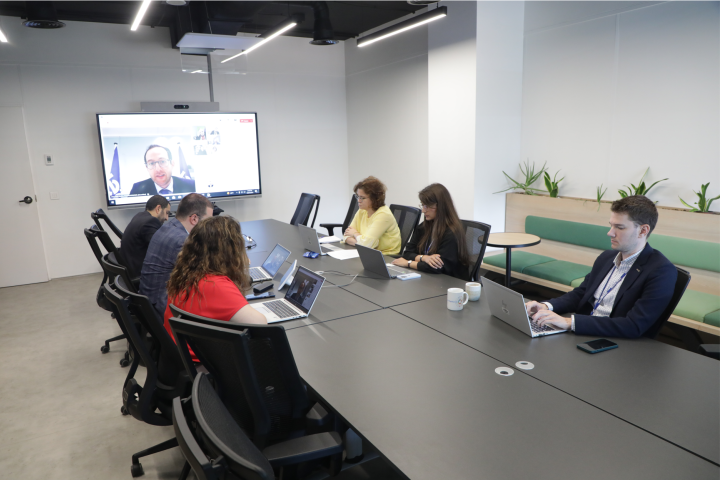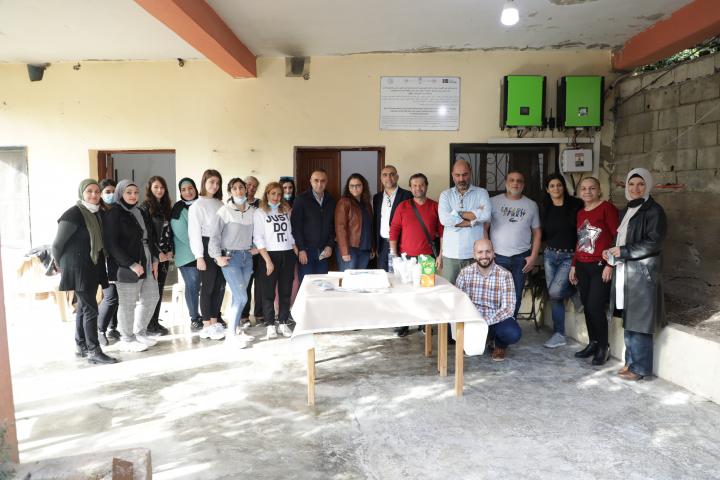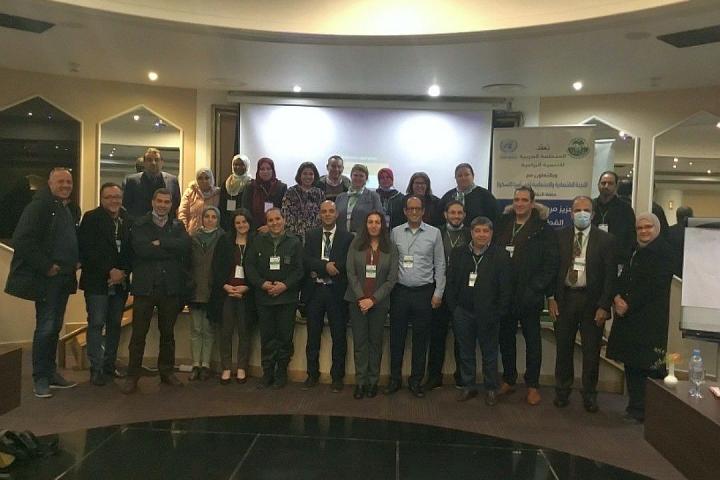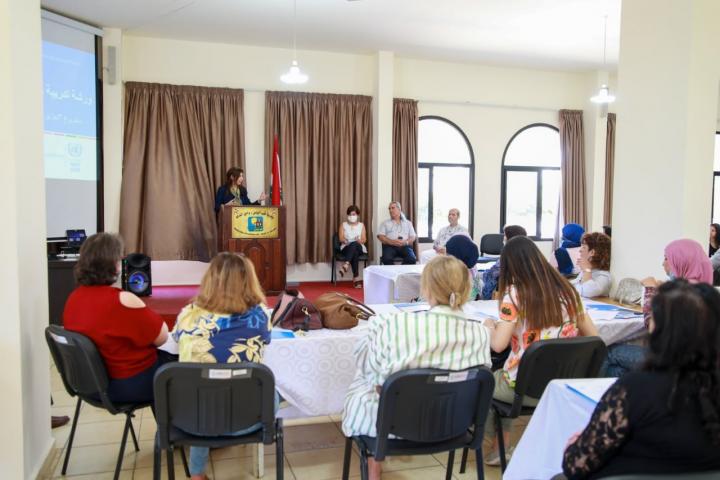As is customary since 1993, the United Nations celebrated World Water Day on 22 March. In Lebanon, ESCWA marked the day through a seminar held at the UN House in Beirut under the theme: “Water for Cities: Responding to the Urban Challenge.” Lebanese Minister of Water and Energy Gebran Bassil gave patronage to the event, which was co-organized by the Association of the Friends of Ibrahim Abdel Al (AFIAL) and the German Federal Institute for Geosciences and Natural Resources (BGR). The seminar opened with statements from Minister Bassil, represented by his Advisor Abdo Tayyar, the German Ambassador to Lebanon Birgitta Siefker-Eberle, ESCWA Executive Secretary Rima Khalaf, represented by her Deputy Anhar Higazi, and AFIAL President Nasser Nasrallah. Speakers placed special emphasis on the repercussions of urban development over water resources in Lebanon and around the world. Minister Bassil’s statement summed up the status of the country's water sector and the challenges it faces. According to him, challenges include “the increasing demand for water, given the population growth and its unequal distribution between rural and urban areas; industrial and economic development (gross demand for water will reach 1.802 million cubic meters in 2035, compared to 1.473 million cubic meters this year for example); limited water resources available naturally; pollution and climate change; wastewater” and others. Bassil focused on the construction boom in urban areas of Lebanon, which represents an added burden on water resources. He laid out a number of solutions, such as the comprehensive strategy for drinking water, wastewater and irrigation that the Ministry developed. The most notable points of this strategy are groundwater extraction, rehabilitation of existing structures and networks and the replacement of old ones, as well as continuing wastewater collection and treatment projects. In her statement, the German envoy said “efforts to stop pollution of the environment, in particular the water, will only bear fruit if the central and local government, farmers, commerce, and industry and, most importantly, ordinary citizens, pull together based on a broad social consensus for environmental protection and its benefits.” She added that such consensus still has to be established in Lebanon. Elaborating on her country’s support for Lebanon in this field, Siefker-Eberle noted that after the United States, Germany is the second largest donor to the water sector in the Middle East and North Africa region. In Lebanon, the German technical expertise is provided by BGR, whose work includes the bilateral project “Protection of the Jeita Spring.” The BGR-Jeita project will establish the first groundwater protection zone in Lebanon. Higazi read the statement of UN Secretary-General Ban Ki-moon, in which he considered that “the theme of this year’s observance of World Water Day -- “Water for Cities” -- highlights some of the main challenges of this increasingly urban future. Urbanization brings opportunities for more efficient water management and improved access to drinking water and sanitation. At the same time, problems are often magnified in cities, and are currently outpacing our ability to devise solutions.” Higazi also delivered ESCWA statement, which pointed out that the ESCWA region is undergoing the largest, unprecedented wave of urban growth in its history. Today, over half of the population in this region lives in cities, a proportion that is projected to reach two-thirds by 2040. This fast growth poses a big challenge with the growing demand on infrastructure services, namely supplying water in the right quality and quantity. According to Higazi, this imposes “the need for additional, non-traditional resources through desalination methods, especially in the Gulf area, added to the unplanned expansions that create slums requiring additional services that surpass development plans. Weak infrastructure in some countries adds pressure on water supply networks, treatment and discharge, especially on sewage discharge. This leads to deterioration in the quality of groundwater and leaves negative impact on people and the environment.” The president of AFIAL also sounded the alarm, warning that Lebanon's water balance is heading towards disproportion, for needs exceed available water sources, be it springs or renewable groundwater. On the use of water resources in the country, Nasrallah said “the state of drinking water, and water for industrial and home use in all Lebanese cities and villages, is unsound. Citizens needs in water are not met through concerned water authorities, since most buildings and industrial institutions rely on groundwater, while along the coast, groundwater is unsafe, with high doses of lime and salinity that exceed public safety criteria. Such water also damages home equipments and building pipes.” This calls for “an integrated plan for Lebanon’s water capacities, the provision of all consumption needs, and the protection of this water from pollution,” AFIAL chief said. Participants included senior Arab officials and experts involved in water issues, in addition to members of the Arab and foreign diplomatic corps in Lebanon. The seminar featured a panel discussion entitled “Understanding the Urban Water Supply and Water Resource Protection Challenge” and a stakeholder forum entitled “Your Water Supply and You - What Can You Do?,” in addition to the first screening of the documentary “Beirut Waters: A Water Supply and Resource Protection Story.”
Commission
Secretariat
Our Clusters
Collaborate
Resources
Key Resources
Updates
Get in touch



